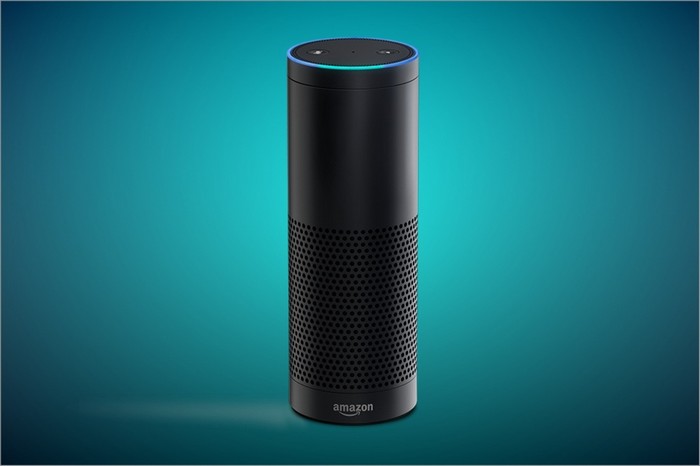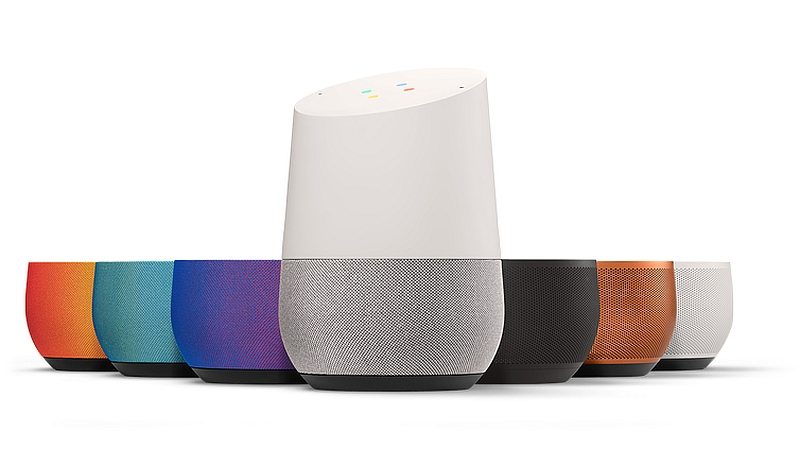Machine Learning and Artificial Intelligence are the latest buzzwords in the tech industry. As we transition towards “smart everything”, we are beginning to see increased adoption of smart devices. Smartphones have evolved to a great extent and smart homes continue to evolve. With offerings from Google, Amazon and Microsoft, smart homes are beginning to see a shift towards smarter home devices and increased AI adoption. The latest in the smart home space are Google Home, Amazon Echo and Microsoft Home Hub. How do these compare against each other? And which one of them is likely to see increased adoption – Google Home or Amazon Echo or Microsoft Home Hub? Read on to find out!
Amazon Echo (Price: $139.99)

Amazon Echo is smart, very smart. In fact, it fits right into your smart home concept. It plays all your music from Amazon Music, Spotify, Pandora, iHeartRadio and TuneIn using just your voice. It allows hands-free convenience with voice-control. Echo can hear you from across the room with far-field voice recognition, even while music is playing. What’s more – using Alexa voice service, it answers your questions, reads audio books and news, reports traffic and weather info, gives sports scores and schedules. You can even use it to control lights, switches and thermostats. Best of all – it’s compatible with WeMo, Philips Hue, Samsung SmartThings, Wink, Insteon, Nest and Ecobee smart home devices. And this is where it probably gains the edge over Google Home and Microsoft Home Hub. Compatibility is as important as features. And Amazon Echo scores well in this department.
Google Home (Price: $129.00)

Google Home looks like an Air Freshener and fits right into your smart home ambiance. It’s basically a voice-activated speaker powered by the all-powerful Google Assistant. Yes. This is one area where Google takes the lead. We all know how powerful Google’s AI engines are. Google Assistant has taken AI to a whole new level and you get to experience it with Google Home. You can ask questions. Tell it to do things. And get things done. Seamlessly. A simple voice request triggers Google Home to play music, podcasts or radio from services like Google Play Music, Spotify, YouTube Music, Pandora and TuneIn – pretty much similar services as supported by Amazon Echo. You can also get real-time answers including the latest on weather, traffic, finance, sports, local businesses and more.
And as always, AI sets Google devices apart. With your permission, Google Home will learn about you and get personal. It can retrieve flight information, set alarms and timers and even tell you about the traffic on your way to work! And this one’s priced lesser than Amazon Echo.
Microsoft Home Hub
Before we dive into Home Hub, let’s make something very clear – Microsoft Home Hub is NOT a device. It’s not designed to take on the likes of Amazon Echo and Google Home. It’s just a software. But that software can do everything Amazon Echo and Google Home devices can, with one added benefit – a screen! Yes. Home Hub is designed to run on Windows 10 PCs with touch screens. It can also work on any Windows 10 machine. Microsoft believes adding a screen to “smart” devices makes things much more approachable and useful. And since this isn’t a product in itself, it doesn’t have a price tag per se. The feature will be part of Windows 10 very soon in a series of three updates – Redstone 2, 3 and 4. The updates are likely to start rolling out next year.
So who’s likely to dominate the smart home speaker space? It looks like Amazon Echo, Google Home and Microsoft Home Hub are all equally good, with Google Home taking the lead with its powerful AI and Echo taking the lead with its amazing sound quality. Microsoft Home Hub, however, isn’t a product in itself. If you are looking for something to add as a home decor plus a smart device, then Home Hub wouldn’t fit in. Again, the final choice is purely subjective.
